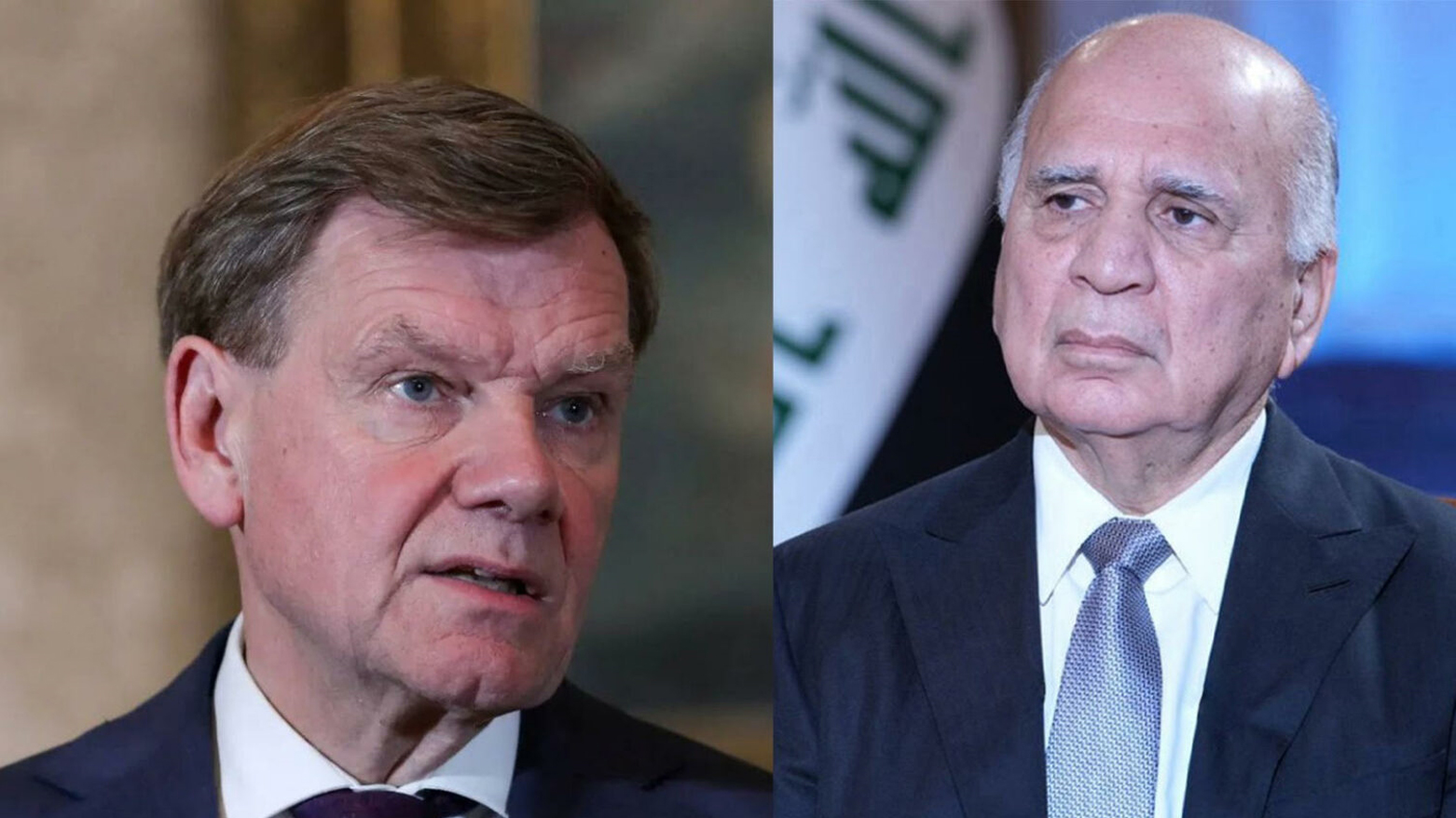Iraq, Germany Urge De-escalation Amid Regional Tensions
Iraq FM Fuad Hussein and Germany’s FM Dr. Johann Wadephul discussed Middle East tensions. Germany pledged support for Iraq’s stability and urged diplomacy over Iran’s nuclear issue. Hussein warned of Israeli airspace violations, oil market risks, and a possible new migration wave.

By Kamaran Aziz
ERBIL (Kurdistan24) — Iraq’s Foreign Minister Fuad Hussein held a phone call with Germany’s Federal Minister for Foreign Affairs, Dr. Johann Wadephul, on Saturday, June 14, 2025, to discuss regional developments and the escalating security challenges across the Middle East.
According to a statement issued by Iraq's Foreign Ministry, the two top diplomats exchanged views on the current situation in the region. Dr. Wadephul reiterated Germany’s commitment to Iraq’s security and stability, emphasizing Berlin's intention to ensure that Iraq remains distant from any military confrontations or the broader repercussions of the ongoing conflict.
“We want Iraq to enjoy security and stability,” Wadephul stated, as cited in the Iraqi Foreign Ministry’s release. He also noted that Germany is actively coordinating with both regional and international partners to prevent Iraq from being drawn into a wider cycle of violence.
The German minister further stressed the importance of resuming negotiations between Iran and the United States, as well as involving European countries, regarding the Iranian nuclear program. He described this diplomatic process as a crucial step toward de-escalation.
Foreign Minister Fuad Hussein, for his part, expressed appreciation for Germany’s support. He raised concerns over repeated Israeli violations of Iraqi airspace, calling them a “blatant breach of international law and national sovereignty.” Hussein urged Germany and the international community to adopt a firm stance against such violations.
Minister Hussein also highlighted the economic risks posed by the widening conflict, warning that a potential closure of the Strait of Hormuz could severely disrupt global oil markets. He projected that oil prices could spike to between $200 and $300 per barrel in the event of open military confrontation, a scenario that could cause inflation rates to rise sharply across Europe and hinder Iraq’s oil exports.
He added that such a disruption could remove nearly five million barrels per day of Gulf and Iraqi oil from global supply, worsening the economic fallout.
Concluding the call, Hussein warned of a likely new wave of migration toward Europe if hostilities continue to escalate. He urged for an urgent international effort to address the root causes of the conflict and to contain the situation through diplomatic means.
